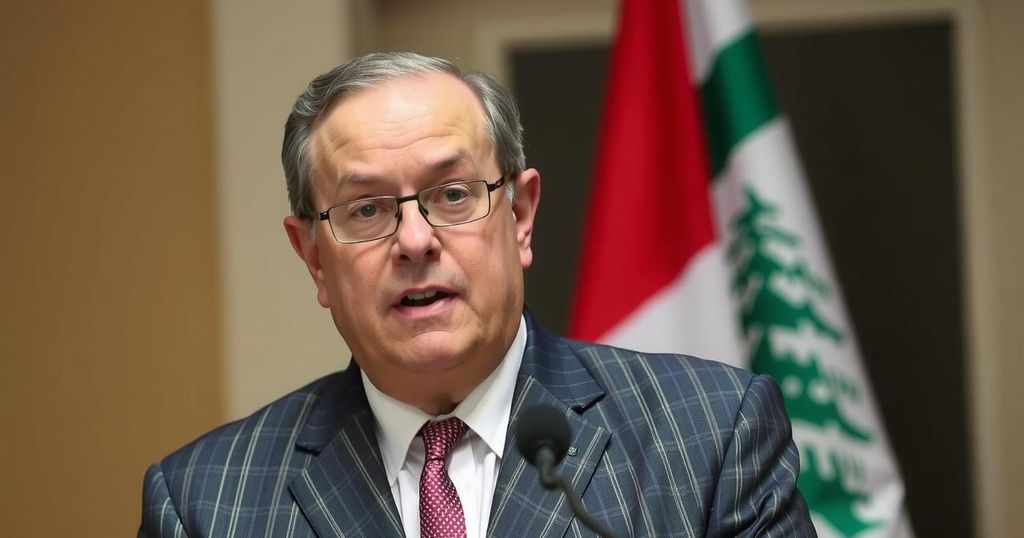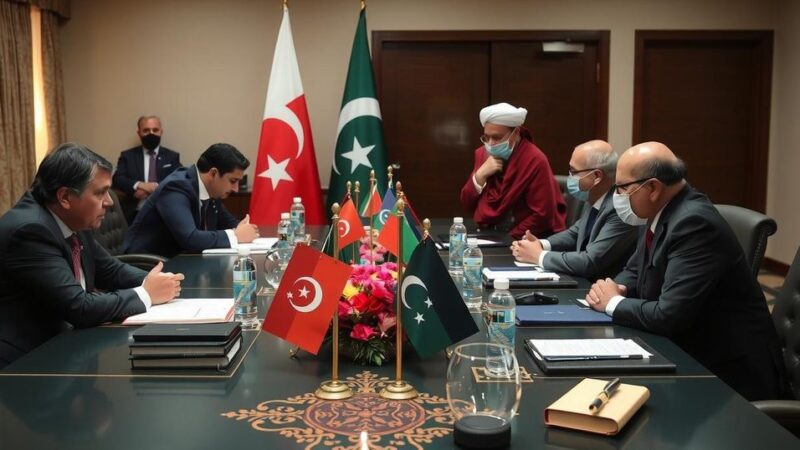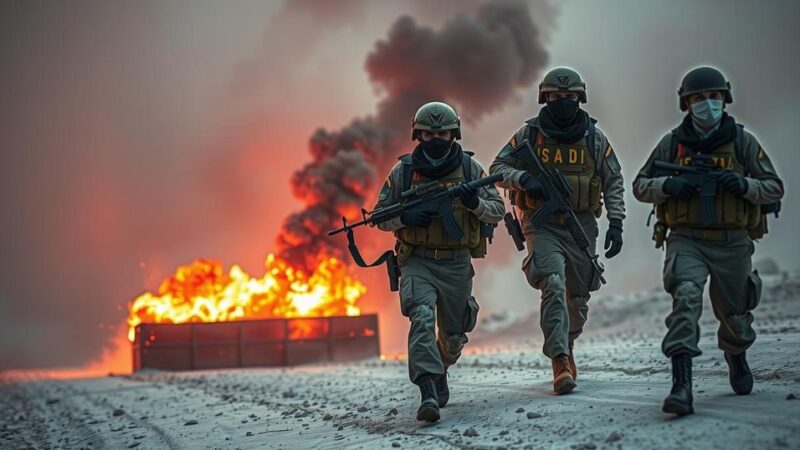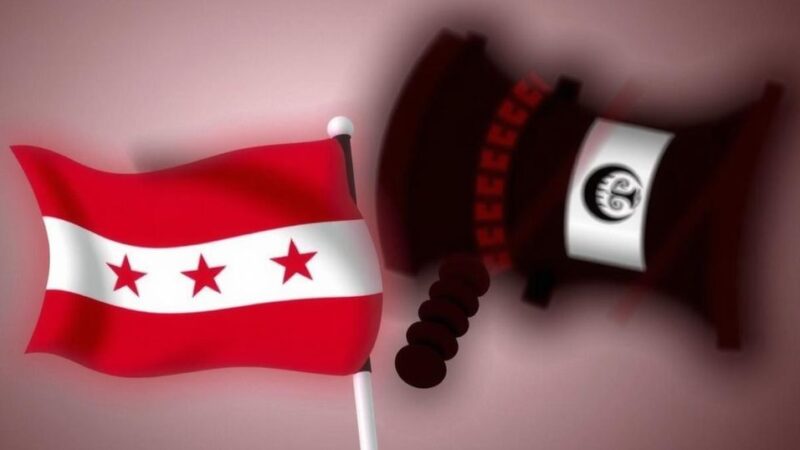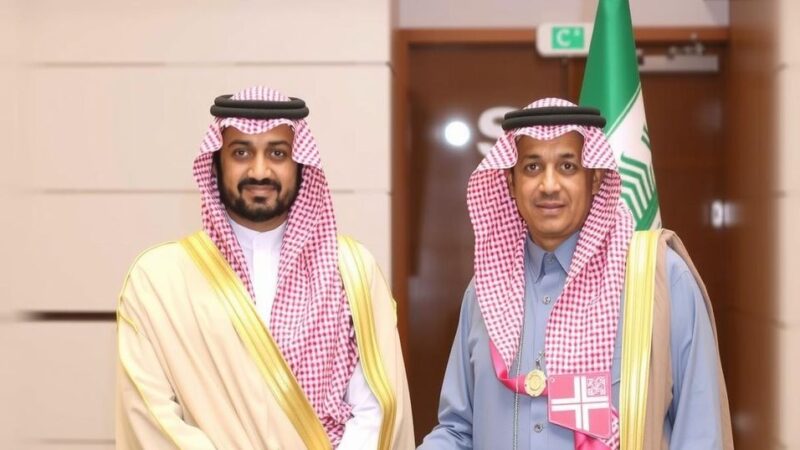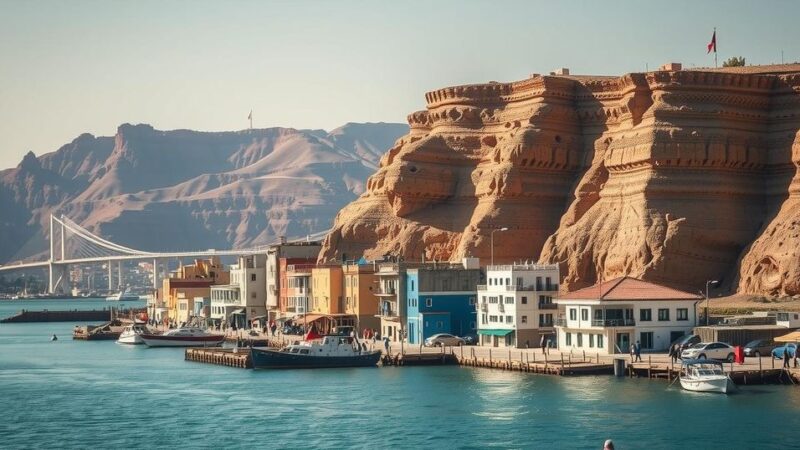Lebanon’s caretaker Prime Minister Najib Mikati has appealed to the US and France to expedite the withdrawal of Israeli forces following a fragile ceasefire with Hezbollah. Mikati is addressing the destruction from recent conflicts, estimated to cost $3.4 billion, while establishing a trust fund for reconstruction. His discussions emphasize the need for implementation of UN resolutions and collaboration with international partners to stabilize the region.
Lebanon’s caretaker Prime Minister Najib Mikati has urged the United States and France to facilitate an expedited withdrawal of Israeli forces from Lebanese territory, following a month into a fragile ceasefire with Hezbollah. Emphasizing his dedication to resolving disputes concerning the UN-demarcated Blue Line, Mikati asserted that eliminating any grounds for Israeli occupation is paramount. During his visit to southern frontlines, he highlighted efforts to establish a reconstruction trust fund in collaboration with the World Bank, the European Union, Arab nations, and international partners.
The Prime Minister is the first Lebanese official to assess the damage in Khiam after the Israeli army’s withdrawal. He reported a staggering physical damage cost of at least $3.4 billion as estimated by the World Bank due to the recent hostilities. Mikati expressed deep pain over the destruction witnessed, asserting that an immediate withdrawal of Israeli forces is critical for the Lebanese army to fulfill its operational mandates.
Mikati noted that the challenges faced by the Lebanese military are compounded by the Israeli reluctance to adhere to the ceasefire agreement, which stipulates a total withdrawal within sixty days. He stressed the importance of collaboration with international partners to expedite the process moving forward. Additionally, Mikati reaffirmed the Lebanese government’s commitment to enforcing international law and UN resolutions, urging those skeptical to remain hopeful for a positive outcome.
On his tour of military units stationed at the front lines, Mikati commended the high morale among soldiers while mourning the sacrifices made in service to the nation. During meetings with military representatives from the US, France, and Lebanon concerning the ceasefire oversight, he reiterated his desire to address the deployment issues of the Lebanese army in light of Israeli actions.
Furthermore, he praised UNIFIL for its cooperation and efforts in stabilizing the region, emphasizing the importance of ensuring compliance with Resolution 1701 and preventing further destruction. Mikati’s visit concluded with warm receptions from local residents, reflecting the community’s resilience amidst ongoing tensions and challenges in southern Lebanon, accentuated by provocative Israeli military actions that included flag display and ground access restrictions.
This article discusses the ongoing geopolitical tension between Lebanon and Israel following a recent ceasefire between Israel and Hezbollah. The Blue Line, a UN-mandated boundary, remains a contentious point of conflict, with Lebanese officials pushing for Israel’s withdrawal from territory they assert is illegally occupied. The reconstruction efforts following damages incurred during hostilities present additional challenges as the Lebanese government seeks international support to rebuild and restore stability. The involvement of the United States and France, prominent international players, is crucial in mediating responses to ceasefire challenges and ensuring adherence to international agreements.
In summary, Prime Minister Najib Mikati’s call for increased international support reflects Lebanon’s urgent need for a swift withdrawal of Israeli forces and a comprehensive plan for reconstruction following significant damage. His administration’s commitment to international law and UN resolutions highlights a diplomatic approach to addressing lingering tensions and advancing stability in the region. Collaborative efforts with global partners are essential as Lebanon strives to manage the aftermath of recent hostilities and rebuild its infrastructure while ensuring national security.
Original Source: www.arabnews.com

